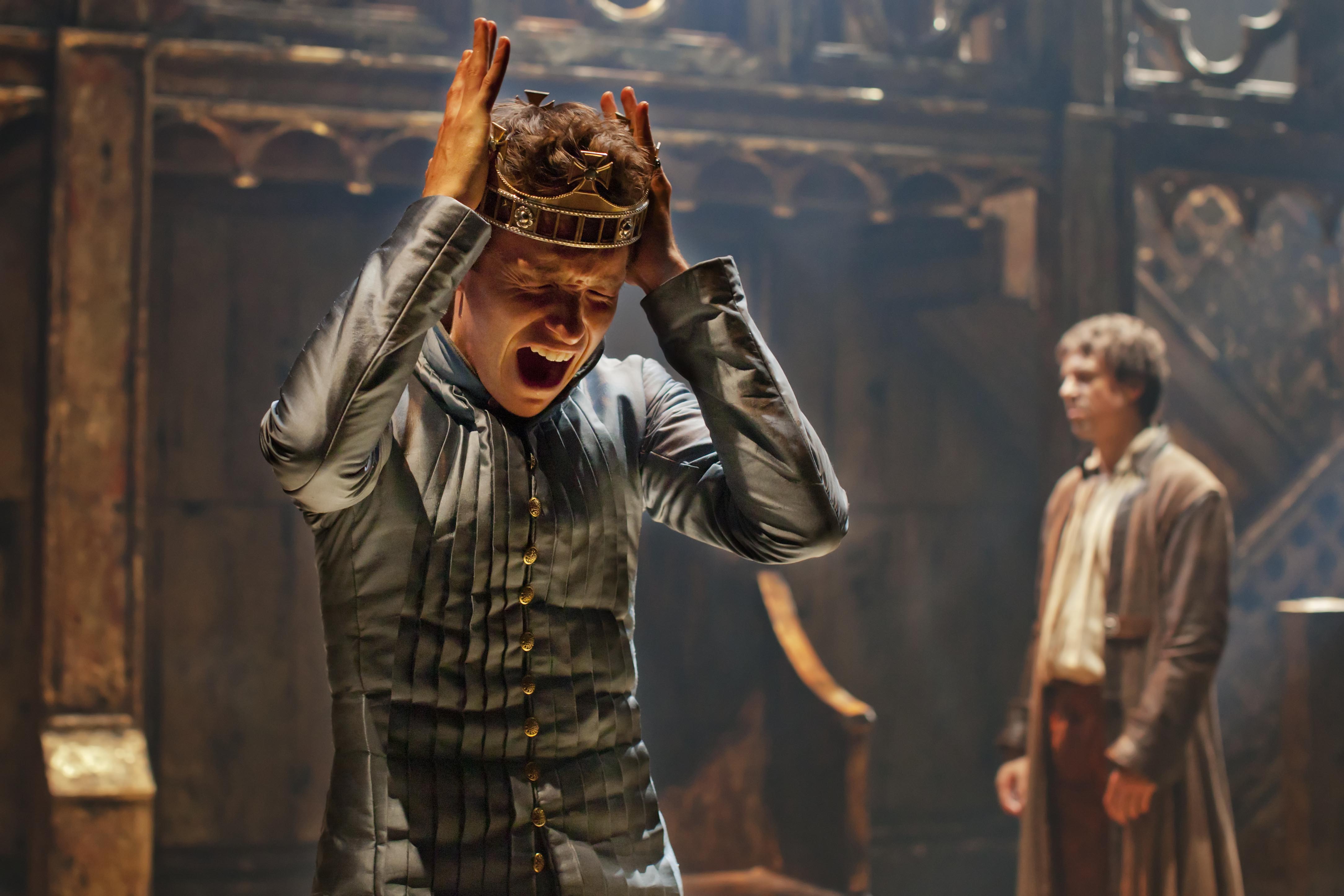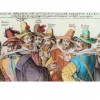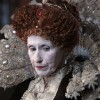Richard II, Donmar Warehouse
reviewed for The Spectator, 14 December 2011

Eddie Redmayne, Andrew Buchan; Photo: Johan Persson
Thanks to some mistake of history, Shakespeare’s Richard II has never quite been recognised as one of those roles against which the great actors are measured.
But it takes a virtuoso to bring Richard to life: like all the toughest roles, he’s a heap of contradictions out of which only the most talented actors can construct a consistent man. We despise him in the first half and then weep with him in the second. He’s a decadent and incompetent king but, once deposed, he becomes an introspective tragic hero, Hamlet’s cousin.
Against this challenge, newly minted film star Eddie Redmayne never quite finds the dignity needed to make Richard truly heroic. He excels as the young king, drunk with entitlement yet shaking with insecurity, but this nervy Richard never quite becomes contemplative enough to make the final scenes courageous. The hands never stop twitching, the grandiose gestures never calm.
There’s none of the intellectualism that Sam West brought to the role ten years ago, in what remains one of the exceptional Richard IIs. Instead, Redmayne is a try-hard Hooray Henry. It’s hard to imagine him parsing the theological justifications of the divine right of kings, which is central to his self-justification, without some very expensive tutoring.
But Michael Grandage’s last production as Artistic Director of the Donmar Warehouse, the culmination of ten extraordinarily uplifting years, is every bit as elegant as we’ve come to expect. The sacral beauty of kingship is tangible here, most obviously in the sweeping gothic dais and battlements that dominate the stage, exquisitely carved from fraying, gilded wood and glinting like fool’s gold.
The monastic quality of the lighting is not the only thing that is reminiscent of Grandage’s revelatory King Lear earlier this year. Five members of the cast return, reviving the same articulacy that marks this company, breaking up Shakespeare’s rhyming couplets with off-beats and staccato, but retaining their delicious clarity.
Among them is the excellent Pippa Bennett-Warner, who brings the same strong-willed gentility to Richard’s queen as she did to Cordelia, along with Ron Cook and Michael Hadley, who are both exceptional as the King’s world-weary uncles. Even the same simple staging that marked Lear grounds Richard II. There is no messing around with props here. There isn’t even a traditional bier for the dying John of Gaunt. Instead, Hadley feverishly paces the small circle of his space like a sharp-minded patient trying to escape a geriatric ward.
So it’s no surprise that the set-piece scenes are gripping. You’re unlikely to see the trial-by-combat scene staged with such nuance again: Redmayne’s Richard halts the fight between his lords more by fainting than by commanding. Against this compelling but unheroic Richard, Andrew Buchan’s Bolingbroke is a something of the straight man. Buchan is noble and upright; there’s little here of the disillusioned autocrat of Henry IV.
Grandage’s production opts to conflate the generational gaps suggested by Shakespeare’s text. While it’s more historically accurate, it’s still a surprise to see Bolingbroke young enough to be Richard’s equal in innocence, and hardly old enough to convincingly view Hotspur as a substitute son.
The decision is proof of Grandage’s power to surprise us, whether in unearthing forgotten gems or refreshing the classics. And while Richard II is a classic, chances to see a major production are still rare. Redmayne’s portrayal needs a little more time to mature but, with such a wealth of talent on show in every aspect of this production, it remains a must-see – if you can find a ticket.
Tags: Shakespeare






